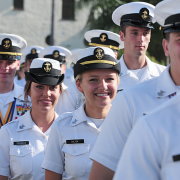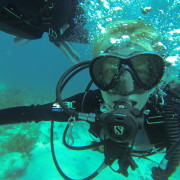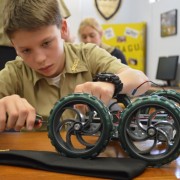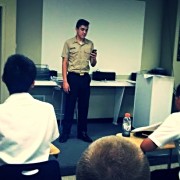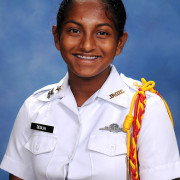Marine Science students take a digital dive with dolphins
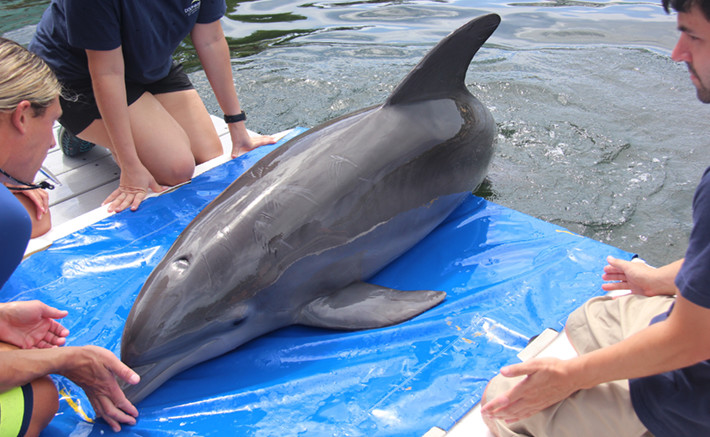
On Monday, March 19th, Ms. Rebecca Blake’s Marine Science class attended a live webinar with Dolphins Plus Marine Mammal Responder.
Dolphins Plus Marine Mammal Responder (DPMMR), based in Key Largo, FL, is a nonprofit committed to the conservation and protection of marine mammals, worldwide, through their active involvement in conservation, research, extensive education, and outreach programs. They house bottlenose dolphins for public interaction, education, and conservation. They also lead and operate the only whale and dolphin stranding organization covering 10,000 square miles of marine habitat in the Florida Keys. Mrs. Blake has a special connection with DPMMR because she worked at this location and also at their Bayside facility for close to seven years as a trainer and then supervisor of animal care.
The webinar was held in Mrs. Deitche’s room during study hall. Students got to see a live training session with the dolphins, followed by a Q&A with Kelley Winship, Ph.D., Research Associate and Marine Mammal Trainer. Dr. Winship showed the students several dolphins including Alfonz, a 25-year-old dolphin who Mrs. Blake says she remembers when he was very young, and Isaac, a nearly 7-year-old dolphin who Dr. Winship says is her favorite. Students got to see the dolphins fed and watered and get their teeth brushed, and asked questions such as what kind of fish they were fed at different times of year and whether the temperature affected their hydration.

During the Q&A, the students asked quite a few more questions. They were interested to find out how to become a trainer with DPMMR, to which Dr. Winship said that “all they needed was a 4 year degree in anything,” which she explained that they’d even had people with degrees in fashion before. “But they also need experience with animals and passion,” she said. Another fun question was when a student asked what sort of personalities the dolphins had. “As with any intelligent creature, they do have very distinct personalities,” Dr. Winship said. “Isaac, for example, loves getting things right. He doesn’t care as much about food rewards or anything like that, he just likes to know when he’s right. But of course, when the girl dolphins are around, he’s a lot more interested in making sure THEY know he’s right!”
The most important piece of information Dr. Winship gave the class was information on how to help beached and stranded animals. “A lot of the time when an animal is stranded, it’s because it’s lost or sick. You should never try to push an animal back out to sea yourself. Instead, always give us a call. We’ve been called out to help anything from bottlenose dolphins to sperm whales. We’ll be able to come to the scene and determine whether the animal can be released onsite, or if it needs extra medical attention, or even if it needs to be humanely euthanized. It only takes one person in the group to know what to do.”


